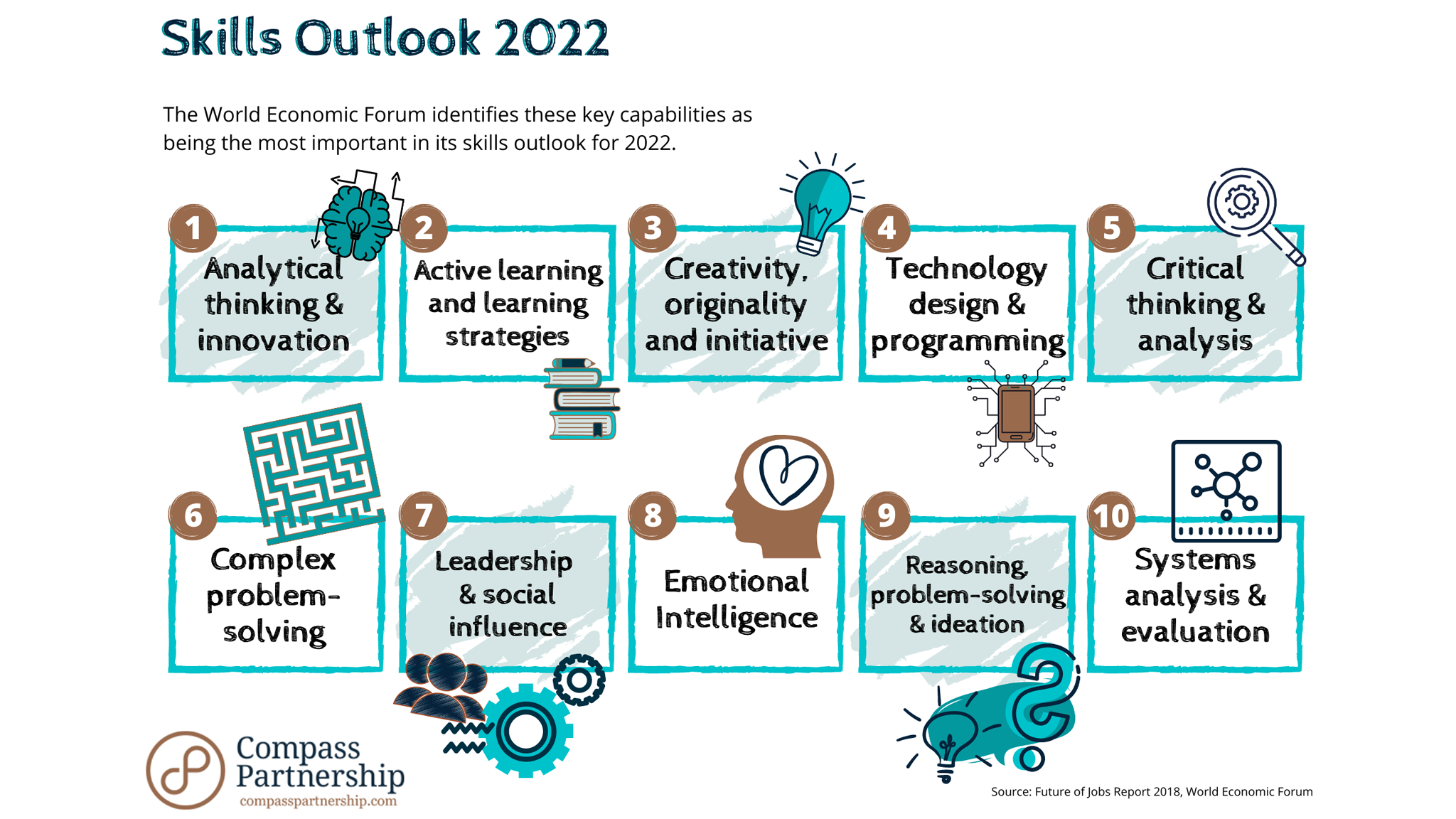What’s in a name? Soft skills. An often-misunderstood phrase and actually very misleading. The idea that these skills are ‘soft’ leads one to assume they are secondary, undefinable, or less valuable than their ‘harder’ counterparts. But it’s time we relooked at the value of so-called ‘soft’ skills.
Too many companies have become relationally toxic places where creativity is inhibited, and systems are bottlenecked, yet these organisations are filled with technically talented individuals. Emotional intelligence and self-awareness are completely lacking. Companies that should be blazing trails are tripping over their own feet.
Business is all about people, so developing the skills that allow us to be successful in our relationships, and in how we communicate and collaborate, are nothing short of critical. It’s about how we interact and connect with others; our dexterity and resilience; the way we create and innovate, and these things are high-value currency in today’s workplaces.
Distinctly human skills
With the rise of automation and AI, our working environments are changing at break-neck speed. While many jobs will be handed over to the function of the machine, the need for human problem-solving and creativity will only increase. Studies show that some familiar technical skills are proving less vital than we once viewed them to be. According to the World Economic Forum, the following skills are increasingly in demand:

The skills of successful teams
Google’s Project Aristotle, a study that looked at their most inventive and productive teams, found that the best groups exhibited a range of soft skills: equality, generosity, empathy, curiosity towards the ideas of others and emotional intelligence. They named this research in reference to the teams being ‘more than the sum of their parts’, a reference to the great philosopher’s famous quote.
The truth is, we live in a world where the workforce is drastically changing. As well as automation becoming more prevalent, there are generations looking for more meaningful jobs and fulfilling work environments. The change in technology and this generational shift are leading to a greater focus on interpersonal skills and influence rather than simply output.
The choice is clear. Whilst a machine can be quick and effective, what you need are people who can be the very best at the skills that are unique to human beings. People who are constantly adding value and richness to your company’s culture; teams who can collaborate to bring diverse thought and fresh thinking to solve complex problems; leaders who can bring out the very best in the people in their charge. The payoff is clear too. MIT Sloan research found that skills training that focused on things such as communication, problem-solving and decision-making delivered substantial benefits, returning roughly 250 percent on investment.
Are you ready?
To respond to the dramatic shifts in the skills required for the future of work, ensure you are giving core interpersonal and emotional skills, the attention and resources they require:
- Make sure your learning strategies are evolving – The learning strategies within your organisation need to adapt to meet the changing skills outlook. Do your training and development programmes fit with the need for better interpersonal skills? Or are they weighted towards more functional and technical skills?
- Reward the right behaviours – Make sure you reward and recognise those behaviours that you want people to focus on, such as communication, collaboration and creativity. If you try to champion these new behaviours, but your systems are geared towards rewarding individual effort and competition, it’s an empty vision. You won’t be able to successfully encourage people to switch how they work.
- Don’t focus solely on technology – As we talk about the future and adopting new learning, it can be easy to look for a technological solution. Remember, the shift in focus is on uniquely human skills, and it is best to refine them in real human interactions. There is a place for blended learning to embed the behaviour change, but in-person training and coaching, where real connections can be made, are a crucial part of the journey.
- Encourage continuous learning and build a coaching culture – Adopting, practising and nurturing these skills involves a commitment from individuals. Provide the environment and the learning structures that are conducive to success, but also encourage people to seek out their own learning and share it with others. Inspire people to impart their knowledge and experience through teaching others, creating a peer-to-peer coaching culture.
With the nature of our work fundamentally shifting, it seems necessary to rename soft skills. Peter Hanlon, President of Dartmouth College, suggests we instead call them ‘power skills’ to more accurately describe these critical capabilities. In relabelling them, they move from ‘nice to haves’ to ‘must-haves’. Suddenly, these skills don’t seem so soft after all.
